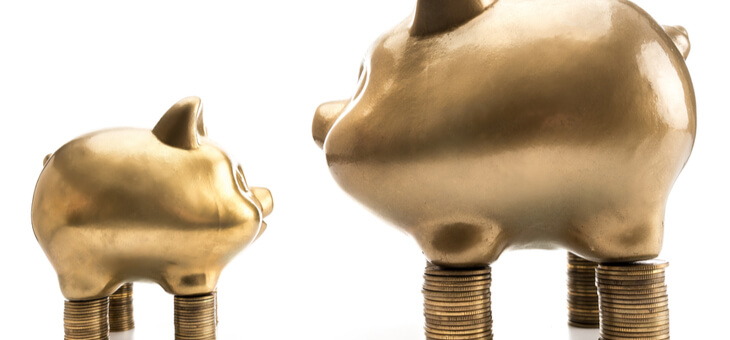If you’re looking to get the maximum return from your super, then having this minimum balance is ideal. Any less and the fund won’t perform as well, any more and the returns will plateau. So how much do you need?
Research from the University of Adelaide reveals that self-managed super funds (SMSFs) with balances of less than $200,000 tend to deliver worse returns than large retail and industry funds. The research was commissioned by the SMSF Association (SMSFA).
Most people start an SMSF in order to have greater control of their assets and investment strategies and they can be a great way to minimise tax.
The current tax rate on withdrawn super earnings is a flat 15 per cent, but where the income is produced by assets wholly supporting an income stream, such as a pension, no tax is payable.
Read: Super bubble crash may be underway, says analyst
When starting an SMSF, many people begin with relatively low amounts knowing they will contribute more and grow the balance. Data from the Australian Tax Office (ATO) shows that almost 40 per cent of all SMSFs contain a balance that’s less than $200,000.
But rather than getting more bang for your buck from an SMSF, the University of Adelaide research shows if your balance is lower than $200,000 then typical returns will be one to 1.5 per cent lower than large funds regulated by the Australian Prudential Regulation Authority (APRA).
SMSF balances above $200,000 saw no material increase in the rate of return for the higher balance, until reaching a balance of around $500,000 where returns typically outpace commercial options.
So unless you already have a relatively big balance, moving to an SMSF may not be the right move for you.
Read: Super execs accused of insider trading
“The research data revealed no material differences in performance patterns for SMSFs between $200,000 and $500,000, so the notion that smaller SMSFs in this range deliver materially lower investment returns, on average, than larger SMSFs in this range, is not supported by the research results,” says SMSFA CEO John Maroney.
“The research results suggest a more appropriate threshold is $200,000.”
The research highlights the need to have your super allocated to several different asset classes, as the highest returns were seen in funds that diversified across multiple classes, says Adelaide University’s Professor Ralf Zurbruegg.
“The performance benefits of adding a second, third or fourth asset class are strong and consistent across the 2017–19 period,” he says.
“The results provide a useful reference point and education tool for SMSF professionals and investors and supports the regulatory focus on SMSFs with inadequate levels of diversification.”
Super funds, both self-managed and commercial, are coming off record returns from the 2020–21 financial year.
Read: More Australians set to receive super contributions
But experts are warning this year’s returns may not be as rosy. Results from January show an average drop in returns across all funds of 2.1 per cent.
Kirby Rappell, executive director of SuperRatings, says the drop is concerning but not entirely unexpected.
“Falling interest rates have supported rising asset prices and we have seen extremely strong returns over the past five, 10 and 20 years,” Mr Rappell says.
“Inflation has been within the Reserve Bank of Australia’s target for much of this time. However, we are seeing an uptick here, which has flow-on effects for investment markets and the super balances of Australians.”
With super returns trending down, now is a good time to review whether having your money in an SMSF is right for you.
Do you have your super in a self-managed fund? Are you concerned about the low returns? Let us know in the comments section below.
If you enjoy our content, don’t keep it to yourself. Share our free eNews with your friends and encourage them to sign up.

